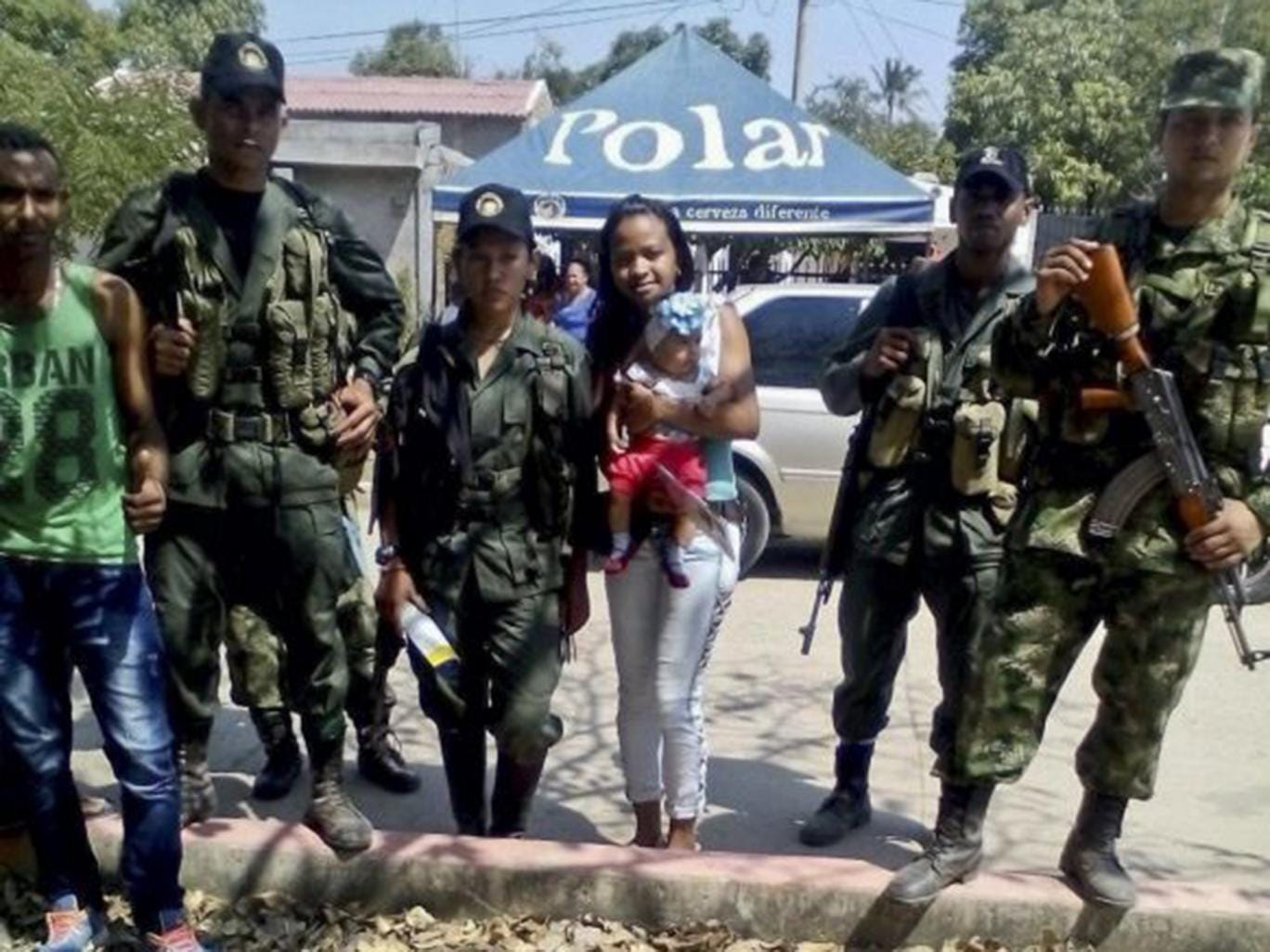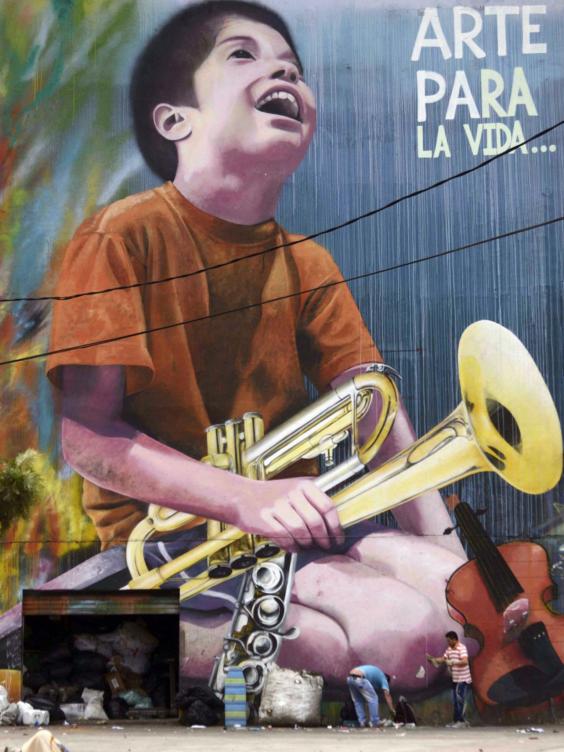
Deep in the Colombian jungle, child fighter Yeimi Diaz feared for her life as members of Latin America’s oldest guerrilla group held a meeting to decide whether to order a firing squad to shoot her.
In the 14 years she fought for the Revolutionary Armed Forces of Colombia (Farc) rebels, Ms Diaz had faced two such councils.
“A war council is almost always a death sentence,” she said, recalling the way the Farc punished fighters who broke its rules. “I got lucky. A guerrilla commander who knew my mother stepped in at the last minute and voted to save my life,” she said.
After years of skirmishes with government troops, long mountain treks and rationed food, Ms Diaz escaped and turned herself in to the army in 2009, after finding a leaflet dropped by its helicopters urging rebels to surrender.
Around 18,000 former rebels have quit the Farc ranks since 2003 and joined the government’s re-integration programme.
A further 8,000 Farc members may hand in their weapons over the coming months, if peace talks in Cuba result in an agreement with the government to end their 51-year war, which has killed 220,000 people and displaced millions.
With the deadline of 23 March for a peace accord looming, negotiators are discussing how best to reintegrate former fighters, while Colombians consider how far they will accept former combatants back into society. Demobilised fighters, who may have spent 20 years or more in rebel ranks, face significant obstacles to reintegration.
Ms Diaz said it has taken her six years to rebuild her life. Under the state reintegration programme, she is paid a monthly allowance of up to $140 (£100) provided she attends school or university, takes free psychological counselling and vocational training schemes and does community service.
After learning to read and write and completing secondary school, she found work as a cleaner. “You have to stay positive. It’s not easy,” Ms Diaz said. “The government provides opportunities and grants to start small businesses, but it’s up to you to take advantage of them. Some people don’t. Some complain and don’t stick it out.”
Boris Folero, 48, joined the Farc at 18 because he sympathised with its Marxist ideology, but today works with the reintegration programme. He said finding his own identity after decades with the rebels was a struggle. “Leaving was painful. My personal identity was shaped there. I was formed as a man in the Farc,” Folero said; he left the group in 2005. “Before, it was ‘us’: the collective. Now it’s just me. You have to reconstruct yourself, find a new identity, find out who you really are. I had to grow up – it’s been difficult.”
At one government-run centre for demobilised fighters in a poor neighbourhood in south Bogota, Johanna Diaz is one of 860 state psychologists helping former fighters get used to civilian life. Many are from poor rural backgrounds and adapting to a new life in the capital is hard. She helps them find a place to rent and get job interviews, but her duties also extend to showing them how to use a knife and fork, take escalators and lifts and buses.
“We have to see ex-combatants at least once every month and form a bond with them, to make sure they stay on the straight and narrow,” said the psychologist, adding that years of fighting can led to mental trauma, including post-traumatic stress disorder and paranoia.
Joshua Mitrotti, head of the government’s reintegration agency, said integrating thousands of ex-fighters hinges on long-term provision of education and on rural communities agreeing to give them a second chance. “This is about the transition of people who once held arms to becoming citizens in a democracy,” Mr Mitrotti said.
Around 650 companies in Colombia offer jobs and training to former combatants in exchange for tax breaks. But only one-third of those who have joined the reintegration programme have found jobs in the formal sector. The lack of work means some give in to the temptation to earn money working for criminal gangs. “If we don’t give job opportunities the cycle of violence will repeat itself,” Mr Mitrotti said.
“Just signing a peace agreement doesn’t mean the drug trafficking, the organised crime, will go away. The offer of that kind of work will remain.”
Thomson Reuters Foundation








